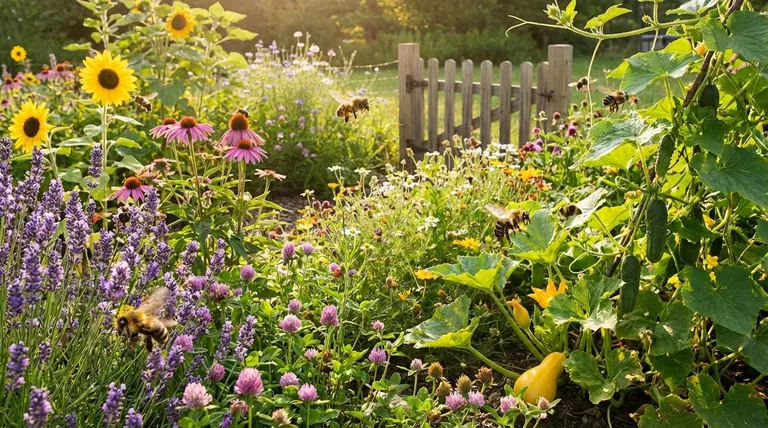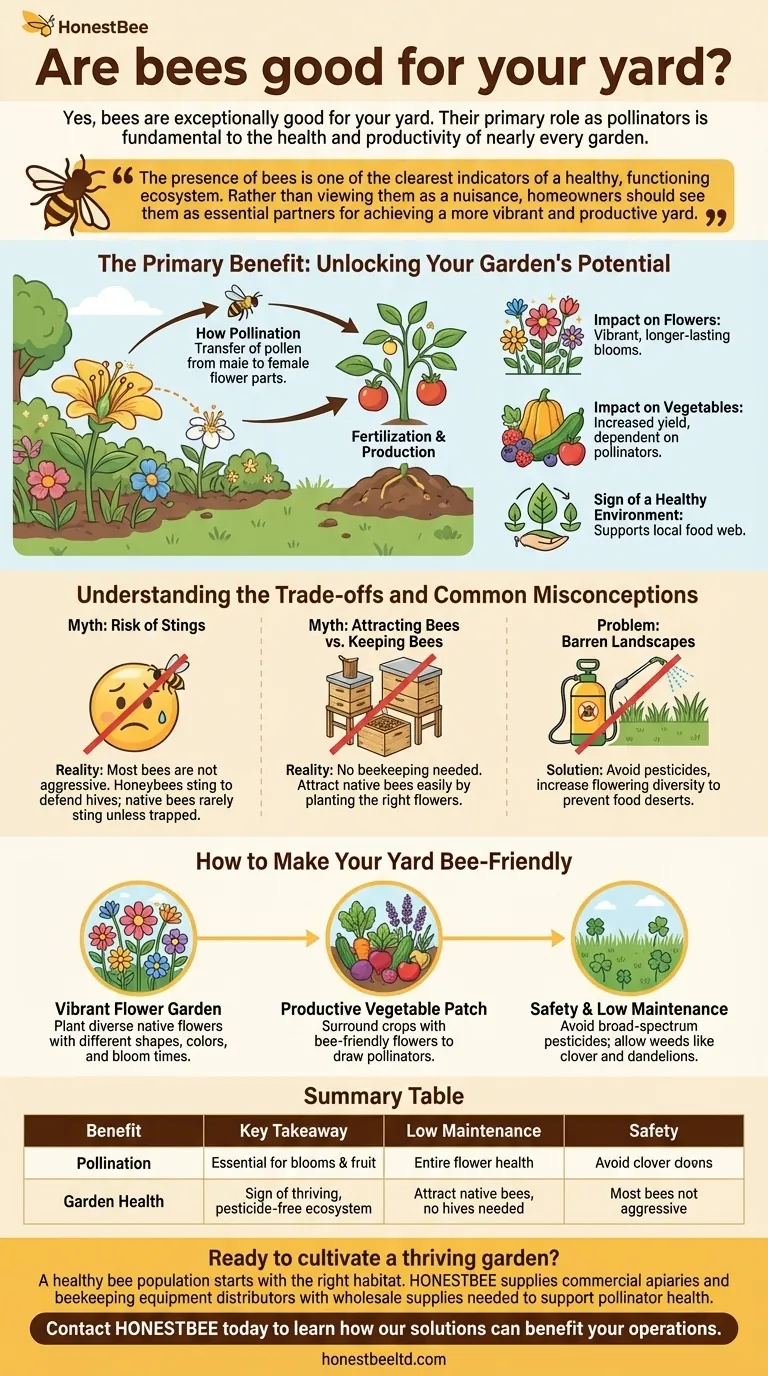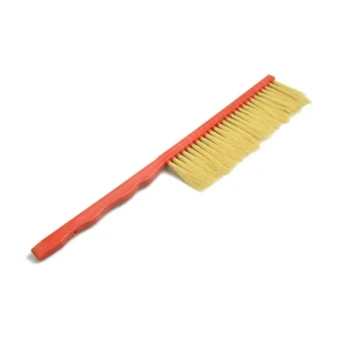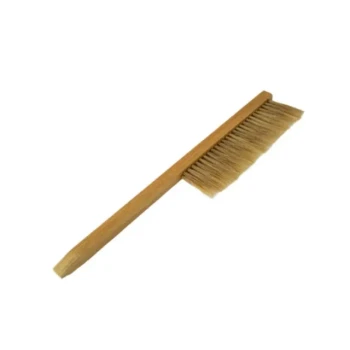Yes, bees are exceptionally good for your yard. Their primary role as pollinators is fundamental to the health and productivity of nearly every garden, helping flowers flourish, trees bear fruit, and vegetable plants yield a harvest.
The presence of bees is one of the clearest indicators of a healthy, functioning ecosystem. Rather than viewing them as a nuisance, homeowners should see them as essential partners for achieving a more vibrant and productive yard.

The Primary Benefit: Unlocking Your Garden's Potential
The core value bees bring to your yard is pollination. Without this critical service, many plants cannot reproduce, meaning they won't produce the flowers, fruits, or seeds you expect.
How Pollination Works
Pollination is the transfer of pollen from the male part of a flower to the female part. This act fertilizes the plant, which is the necessary first step for the plant to produce fruit and seeds. Bees are incredibly efficient at this task as they travel from blossom to blossom collecting nectar and pollen for food.
The Impact on Flowers and Vegetables
For a home garden, this process is vital. Flowers will produce more vibrant and longer-lasting blooms. More importantly, food-producing plants like squash, cucumbers, berries, and apples are almost entirely dependent on insects like bees for pollination. Without them, these plants may flower but will fail to produce a crop.
A Sign of a Healthy Environment
A yard teeming with bees is a sign that your local ecosystem is in good shape. It indicates that there are enough resources—like diverse, pesticide-free plants—to support these crucial insects, which in turn supports the entire local food web.
Understanding the Trade-offs and Common Misconceptions
While the benefits are clear, many people have valid concerns about encouraging bees. It's important to separate myth from reality.
The Risk of Stings
The fear of being stung is the most common concern. However, most bees are not aggressive. Honeybees typically only sting to defend their hive, and the vast majority of native bee species are solitary and even less likely to sting unless physically trapped or crushed.
Attracting Bees vs. Keeping Bees
You do not need to become a beekeeper to get the benefits of bees. The reference rightly notes that beekeeping is a significant commitment. Simply attracting native bees by planting the right flowers is far easier and often more beneficial for local biodiversity.
The Problem Isn't Bees, It's Barren Landscapes
A lack of bees is often a symptom of a larger problem. Lawns that are treated heavily with pesticides or gardens that lack flowering diversity create "food deserts" for pollinators. This not only harms bees but also reduces your garden's overall potential.
How to Make Your Yard Bee-Friendly
You can easily encourage a healthy bee population without installing a single hive. The goal is to create an inviting habitat.
- If your primary focus is a vibrant flower garden: Plant a wide variety of native flowers with different shapes, colors, and bloom times to provide a consistent food source from spring through fall.
- If your primary focus is a productive vegetable patch: Ensure your food crops are surrounded by bee-friendly flowers like borage, lavender, or sunflowers to draw pollinators directly to where you need them most.
- If your primary focus is safety and low maintenance: Simply avoid using broad-spectrum pesticides and allow a few "weeds" like clover or dandelions to grow, as they are a valuable food source for native bees.
By working with bees, you are investing directly in the health and beauty of your own yard.
Summary Table:
| Benefit | Key Takeaway |
|---|---|
| Pollination | Essential for flowers to bloom and vegetables to produce fruit. |
| Garden Health | A sign of a thriving, pesticide-free ecosystem. |
| Low Maintenance | Attract native bees by planting flowers; no need for beekeeping. |
| Safety | Most bees are not aggressive and pose little sting risk. |
Ready to cultivate a thriving garden? A healthy bee population starts with the right habitat. HONESTBEE supplies commercial apiaries and beekeeping equipment distributors with the wholesale supplies needed to support pollinator health. Whether you're a large-scale grower or a distributor, our equipment helps foster the ecosystems that make gardens flourish. Contact HONESTBEE today to learn how our solutions can benefit your operations.
Visual Guide

Related Products
- Stainless Steel Bee Hive Frame Wire for Beekeeping
- Professional Stainless Steel J-Hook Hive Tool
- Plastic Handle Single Row Artificial Fiber Bee Brush
- Stainless Steel Bee Hive Smoker Beekeeping Smoker for Wholesale
- Notebook Style Beeswax Foundation Mould Wax Foundation Mold
People Also Ask
- What role do vertical steel wires play in the reinforcement of beehive frames? Enhance Hive Stability & Quality Control
- Why is wire sometimes threaded into foundationless frames? Ensure Comb Stability and Harvest Durability
- What role does High-Strength Wire play in the assembly of commercial beehives? Enhance Stability and Profitability
- Why is stainless steel frame wire recommended over galvanized wire? Ensure Honey Purity and Prevent Lead Contamination
- What is the specified wire gauge for the bee frame wire? Mastering 26-Gauge Wire for Durable Honeycomb Support



















